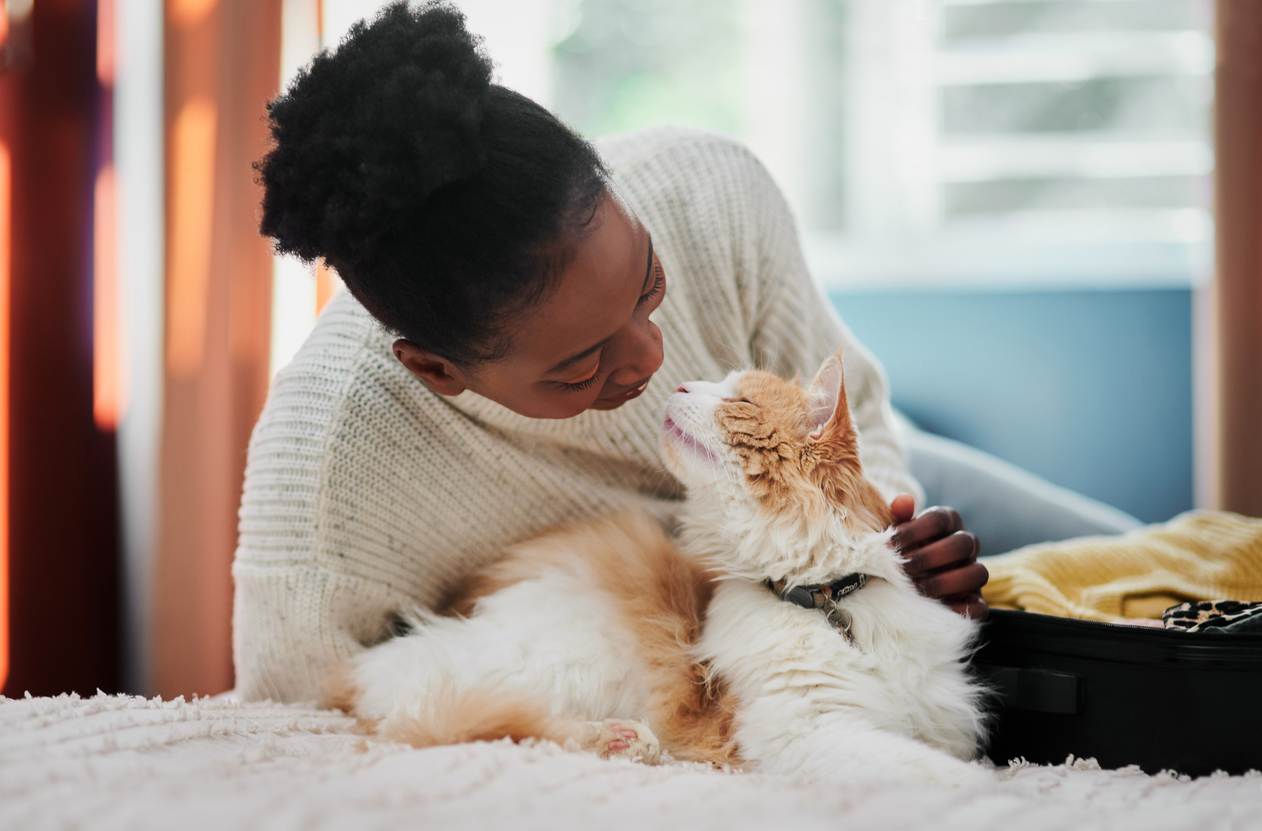As pet owners, we’d like to think we all understand our furry friends. Sure, we don’t speak the same language, but as the bond between animals and humans develops, we begin to decipher the little signs and sounds they make.
Cats, in particular, are often depicted as withdrawn animals, but this is far from true. Feline companions express love, affection, stress and discomfort in a number of ways. If you’ve ever found yourself a little puzzled as to how your cat is feeling, we’re here to help.
Read on to discover our brief guide to feline emotions.
Body Language
First and foremost, cats are incredibly expressive creatures. Though they may be tricky to read at first, we can learn a lot from their body language and physical movements. Actions such as kneading and head rubbing are often signs of love and affection. You may have noticed your cat getting closer or brushing against your legs; this type of behaviour is their way of showing love and saying hello.
Vocal Communication
Of course, we’re all familiar with the irresistible meowing of a furry friend, but this isn’t the only sound a cat makes. What is particularly interesting is that cats only meow at humans, not other cats. In addition to this vocalisation, cats also purr to express pleasure and feelings of comfort and will often chirrup to communicate with other cats and owners.
Just as cats express positive emotions via noise, they also use sound to express anger, nervousness and stress. For example, the unmistakable hissing of a cat is a sign of aggression and is often a result of them feeling anxious or in danger. If a cat hisses at you, give it a little room to breathe.
Signs Of Distress
Of course, our feline friends don’t just convey their emotional states, they often communicate to alert us of their physical health. Animals are incredibly intuitive, and if something doesn’t feel right, they’ll attempt to let us know. Most of the time, there’s nothing to worry about, so don’t be alarmed if your cat is being particularly vocal or affectionate. However, if something is bothering them, it is usually clear to us.
If your cat is displaying clear signs of distress, there may be a physical ailment to address. In this case, it is worth a trip to the vet for a checkup.
Bay Vets
Here at Bay Vets, we’re proud of our status as an internationally recognised cat-friendly clinic, and are able to provide all manner of veterinary care to your feline companions. Whether you require a routine checkup, vaccinations or an emergency appointment, we’re here to help.
Please feel free to enquire as to our registration availability today.





